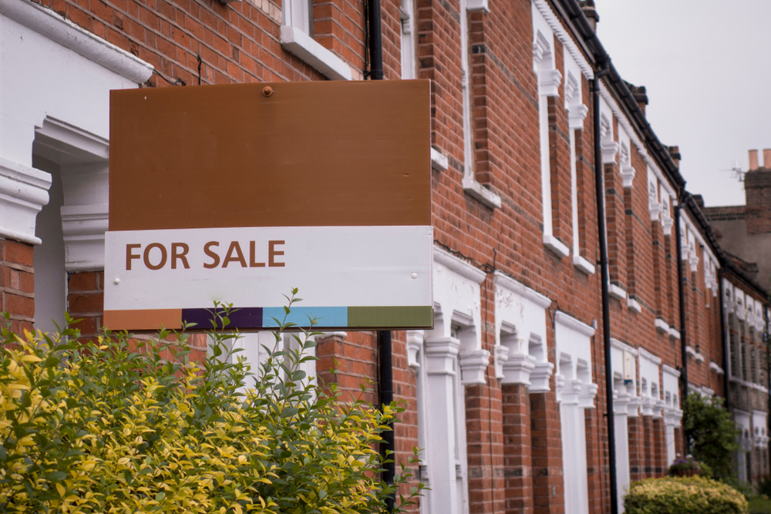If you want to sell your property quickly and for a good price, any homeowner knows that you must ensure your house is as appealing as possible in order to attract potential buyers as you can. But this can be difficult if you know there are issues with your property, such as having nuisance neighbours, a high crime rate or even subsidence issues. As a result, it can be tempted to not disclose any such information to potential buyers which may put them off. However tempting this may be, it is advisable to be honest and disclose all information necessary when selling your home, otherwise it could come back to haunt you later on – after all, honesty is the best policy. So, what do you have to declare when selling a house?
1. What do you have to declare when selling a house?
It is a common misconception that buyers are the only party responsible for checking out the quality and suitability of the property before going ahead with the purchase (also known as “caveat emptor”), but this can only go so far. Legally, the seller must disclose certain information to potential buyers before exchanging contracts.
In fact, as part of the standard conveyancing process, the seller is required to fill in a “Property Information Form” – also more commonly referred to as a TA6. This piece of paper is in place to inform buyers of any information about your property that they wouldn’t be able to find out elsewhere, such as through a general house viewing or a house survey – in other words, hidden issues.
This document forms part of the pre-contract documents, which means it is legally binding. The buyer is well within their right to sue you if you lie on it, or deliberately conceal something.
What must you declare when selling a property?
- Hidden defects (e.g. asbestos or high carbon monoxide levels)
- Any problems with neighbours (e.g. boundary disputes, noise arguments, and any neighbours with an Antisocial Behaviour Order (ASBO) by the police)
- Applications for planning permission (e.g. pending, approved, or have been denied)
- Any alterations or building work carried out on the property (you must show certificates, applications for development and planning permission details)
- Building insurance details
- Major problems found in previous surveys (e.g. subsidence, problems with the roof etc.)
- Proposals for nearby development/construction
- Crime rates in the area (e.g. neighbourhood burglaries, murders etc.)
- Pests or problem weeds that are associated with the property (e.g. rats, bats or Japanese knotweed)
- Location of the house (e.g. is it near a flight path or near a motorway?)
- Outstanding debts associated with the property
Please note: What you have to declare when selling a house is subject to change, as over the years the form has been updated and extended several times. Be sure to ask your solicitor when selling your property, as they will be able to advise you best on what is necessary to ensure you aren’t breaking the law.
When speaking to potential buyers, remember the following:
- Consider the issue in the eyes of a ‘reasonable’ buyer’
If a reasonable person will consider something a negative factor, it should be disclosed.
- Consider context
If your prospective buyer is young and single, the chances are a noisy neighbourhood, or a nearby bar or club won’t be as much of an issue as it will be to a young family or elderly couple.
2. How will the TA6 form affect my property sale?

Photo credit: Willy Barton / Shutterstock
More often than not, filling out a TA6 form will not affect your house sale much. Once you have declared all the necessary information, it is up to your potential buyers to weigh up the issues and decide whether to move forward and purchase your property.
Depending on your property and the issues you have declared, you may find that the time your property is on the market or the sale price will take a hit, but when comparing this to being sent to court for failing to disclose all information and the fees you will incur, it’s a no brainer.
It’s worth noting that if there are more serious issues which may make your home difficult to sell, you will need to appropriate paperwork. For example, if your property (or a neighbouring property) has had Japanese knotweed, you should produce the necessary paperwork for when it was treated, how it was treated and the outcome. By outlining the full picture to potential buyers, it helps them to see that you are on their side and that they can trust that you are declaring all relevant information to them.
3. What happens if you don’t complete the TA6 form?
Some homeowners may be tempted to forego filling in the TA6 form as, after all, it is not compulsory to do so. Despite this, most conveyancing solicitors will advise that you do, but it is worth going to the trouble as if you don’t, it can raise major warning signs for potential buyers and suggest that you are hiding something.
This can result in buyers pulling out of the house sale or delaying the selling process, as buyers want to carry out surveys and get expert opinions in order to find out what is wrong.
4. What happens if you lie on the TA6 form?

Photo credit: Freedomz / Shutterstock
What to declare when selling a property is entirely up to the seller, but one thing is for sure: everything must be correct. As the document, once submitted, is legally binding, if the buyer purchases your property and finds out you deliberately lied on your TA6 form, you may face being taken to court.
It is understandable that sellers may be tempted to distort the truth on the TA6 form if they have issues with their property, such as an ongoing boundary dispute with neighbours, or excessive noise levels. However, the form makes it difficult to lie as many questions require a yes or no answer, so you can be caught out and things will come to light eventually. In fact, if you exchange contracts and the buyer makes the purchase but later finds out you lied, they are well within their right to sue you and take you to court, so it’s best to be honest.
If you are unsure what to include on the TA6 form, such as whether to declare that you have had a minor dispute with a neighbour in the past which has since been resolved, it is worth discussing with your solicitor. However, as a general rule of thumb, anything that was put in writing to a neighbour, or phone calls made to the council or the police, should be mentioned.
5. What happens if you fail to declare when selling a house?
In short, if you fail to declare all necessary information about your property, you can be sued.
Under the Misrepresentation Act (1967), the burden of proof of misrepresentation has shifted from buyer to seller. This means that it isn’t up to the buyer to prove you lied on the form, it’s up to the seller to prove they didn’t lie. If the buyer decides to make a claim against you and documents are found that show you are lying, if a court finds you guilty – whether it be fraudulent, negligent, or innocent – they can order you to pay damages to your buyer, which can be thousands of pounds depending on the nature of the problem. Is it really worth it?
If you have lied and the case of misrepresentation is serious enough, the court may order rescission of the contact. This means that you will need to buy back your old property and cover any of your buyer’s expenses, including mortgage interest and legal costs.
You may find that if your property have a number of different issues which may have a negative impact on your house sale, you may want to consider selling your home to a we buy any house company in exchange for a cash sum. If you are looking for a quick house sale, this route can be significantly quicker and highly advantageous. Get in touch with the Sellhousefast.uk team today for your free valuation.
Feature image credit: Pormezz / Shutterstock




